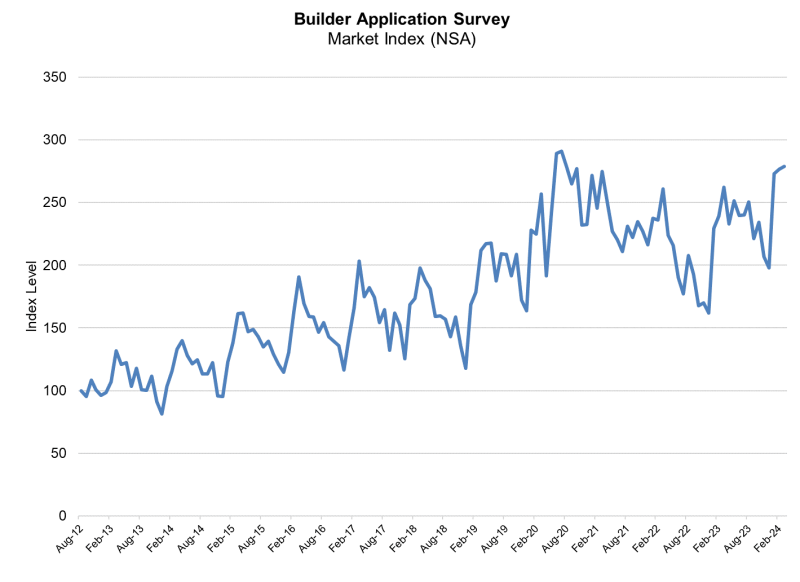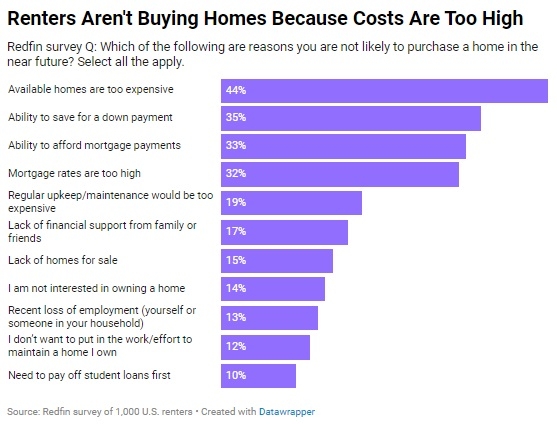Advertisement
Recipe for a new age mortgage broker
The commercial corner: The commercial condominium market: An expanding opportunity for brokersMike BoggianoCommercial condominiums
The Mortgage Press is pleased to present "The Commercial
Corner," a monthly column by Mike Boggiano of Silver Hill Financial
LLC dedicated to answering your questions about the commercial
mortgage marketplace. If you have a question that you would like
answered in a future installment of "The Commercial Corner," please
e-mail [email protected].
Countless businesses across the country have begun to discover
the advantages of owning their own spaces in the growing commercial
condominium market. Savvy entrepreneurs, retail businesses and
professionals—from accountants, architects and attorneys to
dentists, designers and doctors—are discovering the
advantages of owning versus leasing. This month's column answers
common questions about commercial condos—information you can
use to capitalize on this growing niche.
What are commercial condominiums?
Commercial condos operate much the same way as residential condos,
with each buyer purchasing an individual unit. Typically, the space
is less than 10,000 square feet, which helps meet the growing need
in many urban and suburban markets for office and retail space
between 1,000 and 10,000 square feet. Some units, however, can
range up to 50,000 square feet. All tenants have their own
entrances and separately metered utilities. Usually, owners pay an
association fee to cover lawn care and landscaping, outside
building maintenance and trash pickup. Individual signage and
parking are frequently available.
What kinds of commercial condominiums are
available?
There are several kinds of commercial condo properties available in
today's market:
• Office. Especially attractive to
service businesses, office condominiums offer desirable spaces for
architects, dentists, doctors, lawyers and other professionals,
often in a more suburban setting, close to their client bases.
• Retail. From bicycle shops and gourmet
food stores to art galleries and gardening boutiques, entrepreneurs
and small retail businesses appreciate the advantages of owning
instead of leasing. Frequently, these retail condos are located on
the first floor of a larger building that includes residential
condominiums or apartments on the upper floors.
• Warehouse. Anyone who currently leases
warehouse space will find the benefits of owning versus renting
attractive. Often, warehouse condominium owners can purchase space
for much less than they would pay to lease. In addition, warehouse
condos are typically available in smaller sizes—less than
5,000 square feet—ideal for the small-business owner.
• Hotel. When acquired for business
purposes, a hotel condominium, also known as a "condotel," presents
the opportunity for condo owners to earn rental income from
travelers. Owners can use their condo whenever they like; but, when
they are away, they can place their condo units in the hotel's
rental program and receive a portion of the revenue. The hotel
management takes care of renting, cleaning and maintaining the
unit, while visitors enjoy all of the hotel's amenities.
What advantages do commercial condos offer potential
buyers?
Commercial condos offer buyers numerous benefits and advantages
over leasing. These include:
• Flexibility. Condo ownership is
typically more flexible, when compared to leasing. Signing a 10- or
20-year lease obligates a business owner to pay the rent and be
responsible for the lease for a defined time period. A commercial
condominium owner can occupy the space, lease it or sell it
whenever he wants.
• Fixed monthly expenses. Ownership
offers built-in protection against rising rents in desirable
locations, along with the security of regular, predictable monthly
expenses.
• Tax advantages. Property ownership
offers significant tax advantages when compared to leasing.
• Equity. Owners have the opportunity to
build up equity in their properties.
Where do I look for these kinds of business
opportunities?
For residential brokers who wish to get involved in the commercial
condominium market, there are numerous ways to source this kind of
business opportunity.
Talk to developers who are building commercial condo
space—from the large-scale, mixed-use metropolitan projects
and hotels to smaller suburban professional buildings. Look for
opportunities within your residential customer base—the
previous client who may have outgrown his home office, the
professional who is new to an area and may need office space close
to home or the business owner whose lease is up. Get involved in
your local chamber of commerce to connect with new business owners
who may need office, retail or warehouse space. Browse through your
local business journal or other business publications to find ads
promoting commercial condo sales; the real estate agent or agency
sponsoring the ad is likely a good contact for leads and
referrals.
What do I need to know about commercial lending to work
with office, retail, warehouse or hotel condo
buyers?
Commercial condos are single units and often owner-occupied.
Because the revenue for the condo is generated by a single
owner/occupant and not necessarily from the property's cash flow,
these properties may have difficulty passing debt service coverage
ratio requirements (the traditional analysis method used by most
commercial lenders). However, by working with the right
lender—for example, one using a debt-to-income underwriting
approach—you can help a strong borrower get financing rather
easily. To find success in the commercial condo niche, first spend
the time to find the right lender partner so that you can close
deals easily and quickly.
If you're new to commercial lending, commercial condominiums are
a great opportunity to expand your mortgage lending business. Look
for a commercial real estate lender with innovative program
features—for example, flexible underwriting and high
loan-to-value percentages—that facilitate an easier, faster
process for you and your borrower.
Mike Boggiano is senior vice president, national sales
manager for Silver Hill Financial LLC. He may be reached by phone
at (877) 676-1562 or e-mail [email protected].
About the author





